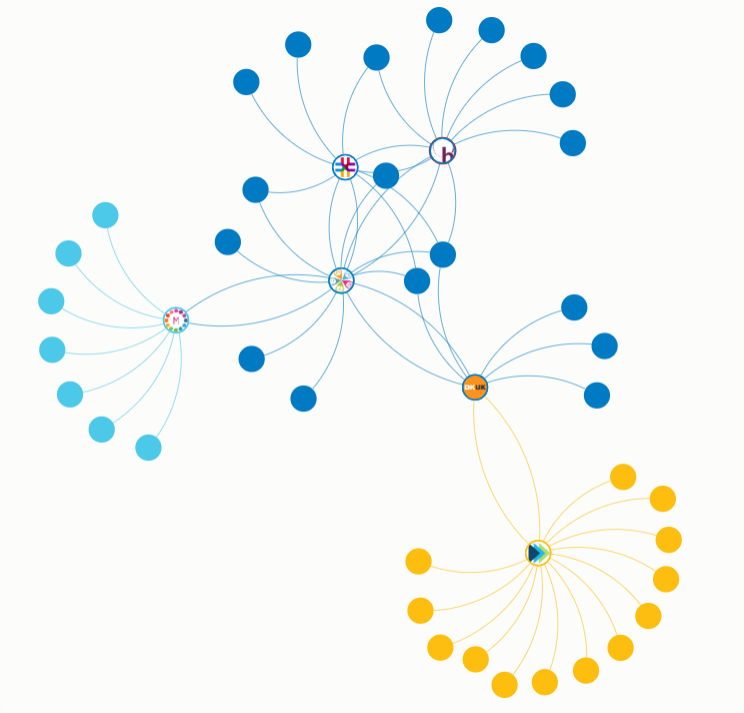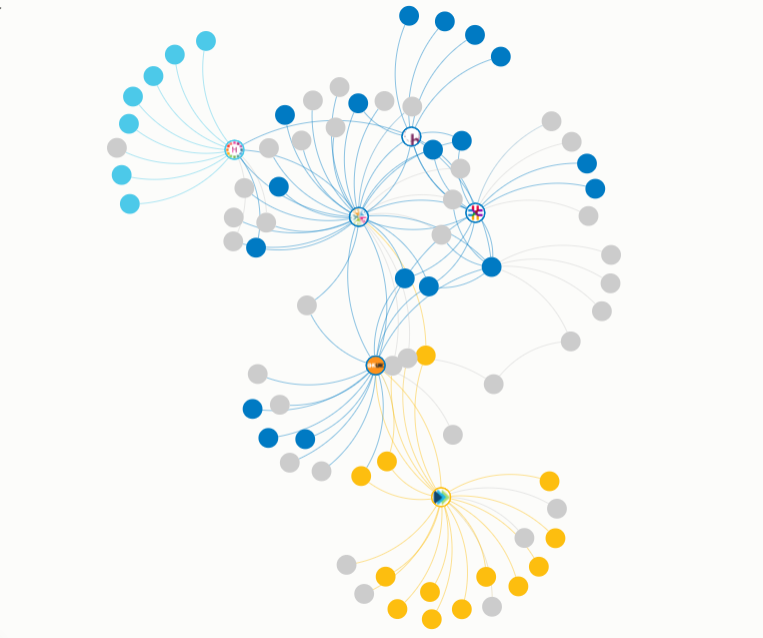Keeping it real - combining the 'real' and digital worlds to build networks
In our Net Equality project the key objective has been to explore and test the use of digital tools, including those for network mapping and analysis, with the aim of building and strengthening networks of equalities focused organisations, grow solidarity, better facilitate joint campaigning and sharing of intelligence and priorities.
You can read all about the co-design process, the different tools and experiments and the mapping workshops in other blogs in this series. However, there's much more to building and growing networks than the sum of everything that can be done with technical tools, however briliant, and in this blog we will explore how 'real life' relationships, built alongside the digital, have bloomed through our engagement with the Cornerstone Fund, and what we have learned about how and why our members want to build relationships. We look at some 'real life' journeys stemming from our work, and finally almost go full circle and look at how we might represent journeys like these through the use of digital tools.
Building relationships in the ‘Cornerstone family’
One significant outcome from HEAR’s involvement in the wider family of projects funded under Cornerstone Round 1 has been the new relationships, collaborations and partnerships we have been able to build as a result of our participation. Some of the Round 1 project leads were already well known to us, for example the Refugee Council, Race on the Agenda and Partnership for Young London. However, the opportunities to connect with these existing friends through the Cornerstone Learning Partner activities was very welcome as a chance to focus on wider considerations than we might have in our everyday interactions.
With others we re-established relationships; for example we were able to get involved in the Power Sharing Project led by the Sheila McKechnie Foundation (SMK), the subject of which project was so relevant to HEAR’s members. Colleagues from SMK delivered one of their project workshops for our members who were taking part in our Stronger Together support programme funded through Awards for All, and also supported our learning for the Campaign Pies campaigning framework. We were also really pleased to have the Cornerstone project led by Community Links Bromley attend our end of project Sharing Learning Event too.
However, by far the greatest relationship-building impact from our participation in Cornerstone has been HEAR’s role as a partner in the Datawise London programme led by Superhighways. The partnership meetings and regular ‘catch ups’ were very important in building strong links between both existing contacts and new ones. HEAR already worked closely with London Plus and the GLA but we were able to expand on these relationships and work together on different things; but the majority of the partners were either completely unknown to us or we had come across them only briefly and never worked together.
Working with and getting to know DataKind UK, the Coalition for Efficiency and Makerble has been really valuable for HEAR. We are really pleased that DataKind UK, as an organisation so reliant on skilled volunteers, has taken a place on the Research Reference Group for the Inclusive Volunteering project funded by Spirit of 2012, in which HEAR is a partner.
We’ve worked with colleagues at the Coalition for Efficiency on delivering training as part of Datawise London, but also on delivering training on ethical and inclusive data collection as part of their Learning Lab series. As part of the Datawise London mentoring programme we connected with Skills Enterprise, especially on their work on digital exclusion, and through a Datawise London event we re-established a closer relationship with Brent CVS. Through an introduction from Datawise London we connected with Bonnie Chiu and the Social Investment Consultancy and were able to contribute to their work on the Diversity Equity Inclusion (DEI) Data Standards, and co-deliver a workshop and blog on improving the collection of equalities data for the Data4Good Festival 2021.
Probably the most important connection we made through Datawise London was one that had an enormous impact on our own Net Equality project; this was finding out about and starting to work with Makerble. Early on in the Datawise London project we met Matt from Makerble and heard about their work in evaluation and impact measurement. It seemed that their approach was a really good fit with the experimental nature of Net Equality, and as we had been funded by National Lottery Reaching Communities to commission a full independent external evaluation we were able to go ahead and work with them on this aspect of the project. (You can read more about this in our Sharing Our Learning blog). In our blogs you will also read about our project experiments and our journey of co-design. We needed someone outside the project to help us facilitate this process, which was so new to us and our partners, and again we found working with Makerble in this role was an excellent fit to our needs. Net Equality has been a challenging project that has required partners’ and participants’ trust in the external facilitator and independent evaluator, and working with someone who already had an existing relationship with another trusted partner, Superhighways, made choosing who to work with much easier.
Superhighways initiated a network mapping exercise with Datawise London partners at the outset of the programme, again mid way through and are now revisiting this exercise to highlight new connections and greater joint working and collaboration across all partner's networks.

Network map showing partner connections in 2019 and then again in 2020.
Relationships and Net Equality
Of course it wasn’t only through the wider engagement in Cornerstone that new ‘real world’ relationships were made. Through Net Equality we drew in a number of new members to our network and grew and cemented relationships with others. This was particularly true with the Experts in Access group; the core group of people providing their expertise was a very committed set of people, many of whom had not taken part in HEAR activities previously. The Net Equality Community and participation in the various experiments and themed workshops also drew in new members with whom we hope we will be working on many new things in the future. Our accessibility work for Net Equality also brought new connections with people to help us assess the accessibility of our tools and produce accessible video content. We’ve also made lots of new links with ‘techforgood’ projects and companies and were really pleased that several of the people who attended one of our very first development stage workshops at London Metropolitan University back in September 2018 and followed us as ‘friends of the project’ since, attended our Sharing Learning event in September 2021.
What we learned about what people want from networking
We learned a lot through Net Equality about how people network and build relationships, why and how they want to do this, what is important for them and what are some of their concerns. We were reminded that productive and genuine sharing requires trust and confidence in others; relationships must be reciprocal and benefit both parties and be seen to be taking place in a safe space. Lack of knowledge can block relationships, particularly across different equalities specialisms, so bringing people together to learn from and about each other is vital, but again a safe environment to be honest is key. People want to share key contacts and information about allies but need to trust in common goals and good faith.
Journeys in relationships
As part of our work as a pan equality intersectional network we are always trying to learn more about what impact we can make from connecting people together. To help us we’ve been describing some members’ journeys and the steps along the way; it shows us that as well as large projects, big events and mass mailings, small actions that may seem insignificant at the time can make a huge impact along the line. Being aware of this, and always being ready to spot opportunities, are important; one email or call at the right time can have big consequences.
Here are some examples to illustrate this point:
Example 1:
- The National Survivor User Network (NSUN), a VCS mental health organisation, joins HEAR Network
- We build a relationship with them and they attend various events
- They contribute a case study to our research project on the impact of Covid 19
- HEAR is a member of the London Health Equity Group (LHEG) - mostly statutory bodies led by Public Health England, with GLA, London Councils, NHS etc and with a small VCS membership. I ask if I can present a short paper on our research at one of the meetings and they agree
- I then ask if one of our contributing members can also attend and present their work, and they agree
- I put out a call and NSUN are the first group to respond; also their topic of mental health is very important in the HEG priorities
- So NSUN attend the meeting as a guest and present their case study
- The Chair of the meeting thinks it is important to share the case study with Thrive LDN (mental health structure for London) and case study report is sent to Thrive LDN
- NSUN report is added to Thrive LDN website
- Thrive LDN writes to HEAR to say that they would like to receive any further case studies done by our members
- NSUN ask if they can become a permanent member of the Health Equity Group and this is approved and they join as one of a very few VCS members
Example 2:
- This also relates to HEAR's membership of the Health Equity Group
- HEAR is asked to help design a focus group seeking the views of deaf and disabled people
- HEAR is also asked to find someone to facilitate / chair the group
- We explain that this facilitator should be from a deaf and disabled people's organisation and they should also have input into the workshop design
- They agree and I introduce them to Inclusion London
- Inclusion London chair and facilitate the group but also influence the design of the event and also the provision of access needs
- Inclusion London point out the need for provision of BSL interpreting at the event and Public Health England (PHE) ask HEAR for a recommendation for someone to provide this
- HEAR puts PHE in touch with a small grass roots cooperative of deaf people who provide interpreting, and they are engaged for the work
- PHE are very impressed and say they will use the cooperative for future interpreting needs, so the deaf people's led small business gets the work
Moving back to the digital
We want to be able to demonstrate these important impact pathways in a digital form, so we’re currently exploring ways to do this with our Net Equality partner Drew Mackie. We hope to be able to trial this approach as a different and important use of digital network mapping, so bringing together the real and the digital to both demonstrate impact and learn how to network even better!

